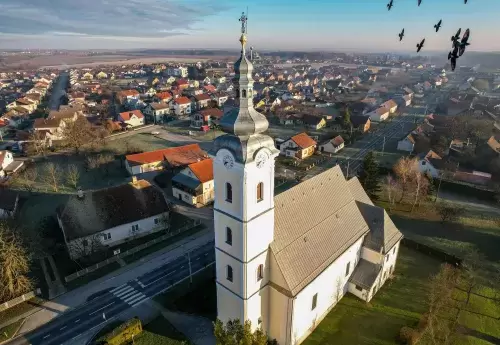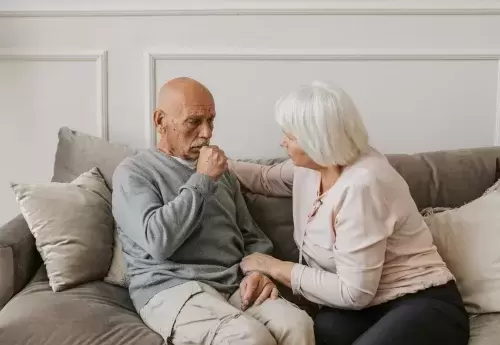
By Eddie Russo, RN
March 6th, 2020—I will remember that day for many years to come. Walking into my night shift that evening, I knew COVID-19 began to crawl its way into our Seattle hospital.
When my shift began, I was in the Float Critical Care Pool as a travel nurse, so my expectations of actually caring for a COVID-19 positive patient were slim. I was on the side of the unit that cared for general neuro patients, curious and nervous of what was on that other side of the barriers put up in the negative pressure unit. Sitting in huddle was enjoyable, with the normal coworker small talk about what was beginning to develop in our country. Yet the uncertainty of the seriousness of this situation was on everyone’s faces. Later that evening, the night shift charge nurse received a call that someone needed to join the COVID-19 ICU for the night due to their need for extra staff, silencing the room. As a healthy, single, 24-year-old without children, I volunteered. That evening started the trajectory of me working as a COVID-19 ICU RN and trained observer of donning and doffing until this day. Since then I have looked at death in the eyes through a mask, PAPR (powered air-purifying respirator) and eye shield. I have held the hands of patients as they said goodbye to their families via video chat. I have cared for my nurse colleagues and seen some of them die from COVID-19.
Walking into the unit that night, I was very uncertain of what to expect. People were extremely stressed, emotions were heightened, and the unit was staffed by some of the most senior and experienced nurses the hospital had to offer. The COVID-19 program I worked in was new and constantly changing. Developing something so rapid and quickly is extremely challenging, especially in a hospital environment. That night after on-the-spot training, I received my first admission. I stayed in that room for over 5 hours in PPE. The fear I felt was incomparable to anything I experienced before, but I can only imagine the fear of my patient sitting in that bed. Uncertain if they were going to end up on a ventilator, crying to their significant other over the phone. Both of us were experiencing a whole new wave of emotions. Unlike them, I had to hide mine. Thoughts raced through my head of getting sick, becoming that patient in that bed, remembering specific scenes and moments from the movie Contagion, when Gwyneth Paltrow’s character suddenly decompensates and passes. Fear was in control that night. Of me, my patient, and fellow coworkers. Rips in gowns and gloves caused panic. A malfunctioning PAPR in airborne isolation rooms causing total breakdowns and tears. At the same time, the amount of staff, security and coordination involved in caring COVID-19 patients created a sense of pride in hospital staff. With that sense of pride joined the national spotlight on essential personnel, particularly nurses. Every shift ended with applause from the community, gracious donations of food and gifts appeared almost every day. Friends from across the country saw me as fighting on the front lines, sending me Venmos for coffee, care packages, calling me and checking up on me all the time.
Despite the accolades and sense of pride, the trauma of being a COVID-19 nurse continued. One night I was assigned to an ECMO (extracorporeal membrane oxygenation) patient on the unit due to my previous ECMO experience and the lack of staff that night. The patient was COVID-19 positive and transmitted from caring for COVID positive patients at an outside facility. I still remember speaking to their spouse (also an ICU nurse) over the phone. After that shift I called my friend, balling my eyes out. I still have nightmares of being that patient in bed. They did not make it. Fellow staff members came back positive. One passed away, the other ended up on the ventilator for a month, another got severely ill and infected their family, including their young children.
Needless to say, being a COVID-19 nurse has been a storm of emotions. After months of shutdowns, I was beginning to feel a false sense of relief that the pandemic was beginning to end. Yet with re-openings, states are becoming overwhelmed with caseloads and the COVID-19 journey is far from over. People are focused on getting back to their normal lives. My fear and sadness have become frustration as I wake up every day to more headlines about COVID-19, COVID-19, and more COVID-19. Leaders act blind to the invisible virus growing amongst their citizens. Masks are seen as an absolute insult to individual rights by some. Common decency and concern for others has been thrown out the window. I sit here wondering if we will be able to handle another significant wave of COVID-19…or if I can even handle it. It seems as if people no longer see health care workers as heroes, and all the hard work we’ve performed to help people is being erased and forgotten.
I don’t work in the COVID-19 unit every shift anymore, but I’m still reminded of my mortality and fears that one day I could be the patient not the provider. Seeing fellow nurses get sick and die has changed me—my parents know my end-of-life wishes, even though I’m only 24. These days the only thing I can do is take a deep breath before every shift and bury my thoughts and fears to focus on my patients.




